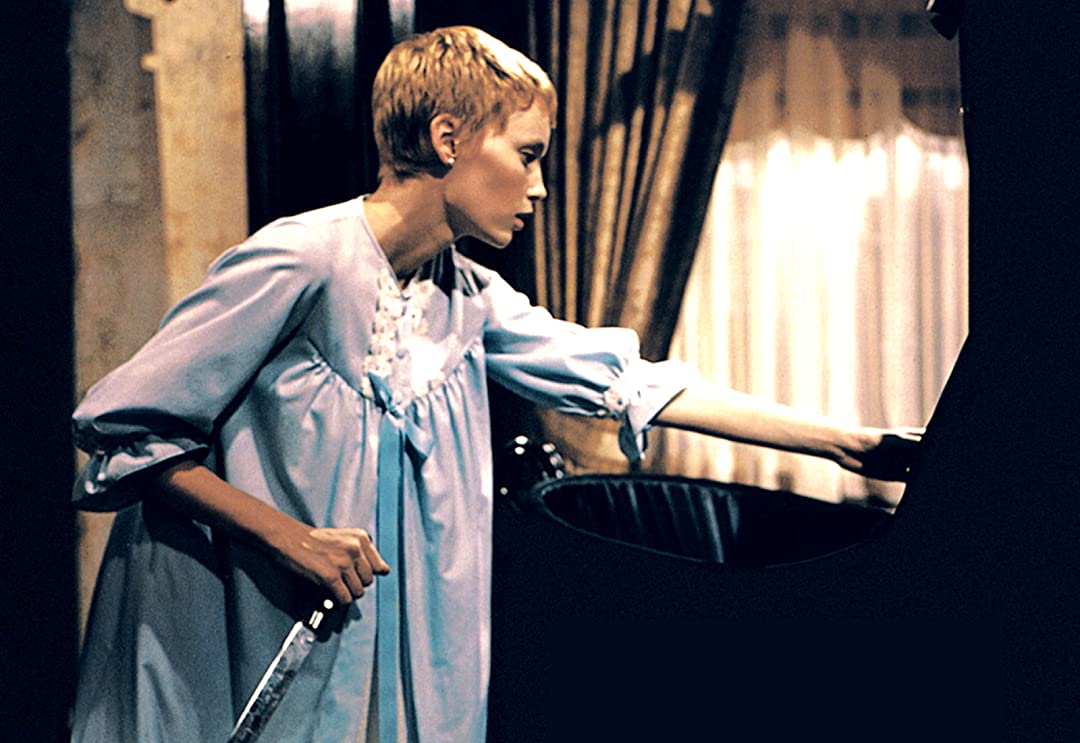In my quest to discover the best films ever made, I came to learn that this 1968 satanic offering is considered the height of horror. Watching it, one can see why. Rosemary’s Baby tells the tale of husband Guy Woodhouse (Cassavetes), a down on his luck actor, moving in with his new wife Rosemary (Mia Farrow), who move in to the exclusive Branford building which has rather an unpleasant history of witchcraft and cannibalism, among other things. The couple hope to have a baby. And they shall have one too.
During her longed-for pregnancy (after dreaming that she’d been raped by something monstrous), oddities, miseries and weirdness accrue before Rosemary realises the Castevets lead a witches’ coven. She becomes convinced they want to sacrifice her baby to the Devil, and that her husband has agreed to help them in return for professional success. Empire
Allow me to confirm, as is mandatory, that the director of this film is not a terribly nice man, in my opinion and that of the Los Angeles County Superior Court. I should like to speak about this film and his direction separately from his atrocious acts if at all possible. Whatever we think about the director, and one is right in not thinking very much of him personally, this is a startling work. Filmed partly at the iconic and recognisable Dakota Building at 1 West 72nd Street, where John Lennon was shot, don’t you know, Rosemary’s Baby is a triumphant screen adaptation of the Ira Levin novel upon which its script is based. Interestingly, having now read the novel, the point must be made that prior to this novel, horror happened elsewhere, on Haunted Hill or in Hill House, for example. Rosemary’s Baby was the first instance of truly home-grown horror, which must have petrified audiences at the time.
Levin went even darker: What if he took the birth of Jesus and turned the whole tale upside down? What if God was not only dead but the devil lived? Vanity Fair
Polanski and producer William Castle succeed in keeping an air of mystery and deep unease throughout the film, the shocking truth is not revealed until the very last scene. In the interim, we are left feeling the increasing tension that Rosemary must have felt, unable to trust anyone in her environs, not even her husband. At all times something is afoot but Rosemary cannot quite put her finger on it. Her shyness and compliance is possibly a large contributing factor to her sorrows.
The film revolves around Farrow, who is in all but a very few shots. Polanski slyly exploits her mannered childishness. Even before she gets pregnant she wears shapeless little smocks and flat, little girl shoes. When she has her hair trendily cropped at Vidal Sassoon (one of the film’s ubiquitous, precise notations of a cultural signpost for the year of the story, 1965-66) she is even more pathetically waifish. […] Easily led, Rosemary repeats parrot-fashion other characters’ statements and allows herself to be utterly dominated. Empire
A personal highlight was Ruth Gordon playing the wife Castevet, with outrageous fashions, pronunciation and sinister undertones. It is no surprise she won an Oscar for this performance. This is a stellar horror and ranks very highly indeed.

